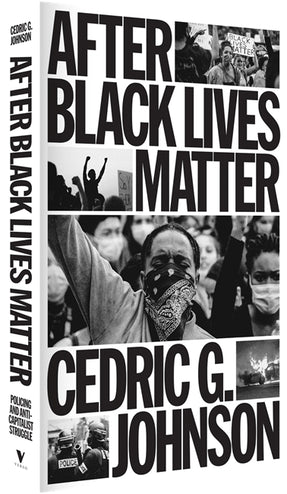Paperback
+ free ebook

+ free ebook
+ free ebook
Contemporary policing reflects the turn from welfare to domestic warfare as the chief means of regulating the excluded and oppressed
Why did a movement as powerful as the one inspired by the murder of George Floyd fall short of securing its most militant demands? After Black Lives Matter argues that the core of the movement itself failed to locate the central racial injustice that underpins the crisis of policing: socioeconomic inequality.
A provocative and expansive critique from the left of the loose collection of protest actions, organizations, and ideological movements-whether prison abolition or calls to defund the police-that make up what we now call Black Lives Matter...After Black Lives Matter should be commended both for the clarity of its message and the bravery of its convictions.
Essential reading for those weary of platitude-driven texts on race and criminal justice and in the market for an empirically grounded political analysis that points to practicable solutions to one of the biggest problems of our day.
A virtuoso performance! Weighing the successes and limitations of Black Lives Matter, Johnson concludes that identity-based mobilization—confusing what people look like with what they need—cannot substitute for majoritarian political coalition-building.
A compelling argument for reinstating a meaningful anticapitalist analysis and politics into the fight to end police violence and the harms of the criminal justice system in the United States. Readers will undoubtedly come away with new perspectives that deepen their understanding of the successes and limitations of Black Lives Matter and its political vision.
Cedric Johnson delivers that increasingly rare experience in political writing: surprise. Whether telling the story of Louis Armstrong’s first hearing of Mack the Knife or reporting on the inequities of Chicago’s public transportation system or mounting a mini-memoir of his encounter with crime in Louisiana and Rochester, Johnson invests the drama of Marxist theory with new energy and vital detail. No matter how dark and dreary the landscape may be, it gets lit up wherever Johnson casts his sharp and appraising eye.
A brilliant scholar who is first and foremost concerned with equality and justice. It’s those very commitments that lead him, in After Black Lives Matter, to question today’s antiracism and its nostrums.